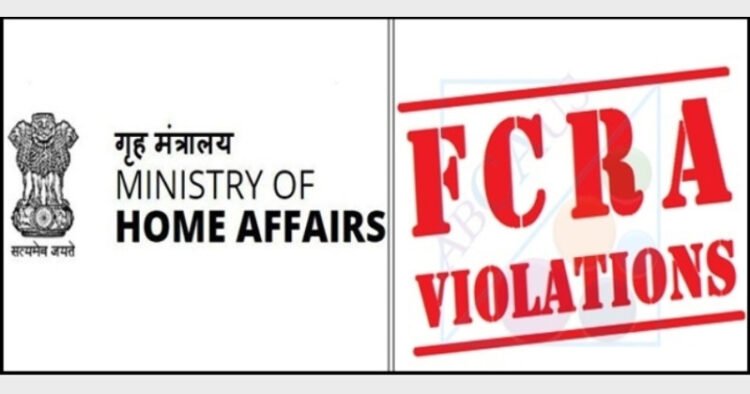The government suspended the FCRA license of a think tank on February 27 due to concerns about foreign funding misuse that could harm India’s economic interests.
The government suspended the FCRA license of a think tank on February 27 due to concerns about foreign funding misuse that could harm India’s economic interests. This followed income-tax raids at several organizations, revealing alleged FCRA violations. The think tank, CPR, challenged the suspension, citing potential closure without foreign contributions. The high court is now seeking the government’s response, and Rule 14 allows organizations to use a portion of unutilized funds during FCRA suspension. This case highlights the regulatory debate over foreign funding in India.
Think Tank’s FCRA License Suspended
The government suspended the think tank’s FCRA license on February 27, citing concerns about its foreign funding being used for undesirable purposes that could harm India’s economic interests, as per the home ministry’s statement to the Delhi high court.
FCRA License of Think Tank Suspended
The government suspended the think tank’s FCRA license on February 27, following income-tax department raids conducted five months earlier at the premises of CPR, Oxfam India, and the Independent and Public Spirited Media Foundation.
***

Improper Utilization of FCRA Funds
The affidavit filed through advocate Arunima Dwivedi noted that during the examination of a survey report shared by the Income Tax Department, it was observed that the Petitioner was using foreign contributions for purposes other than its registered intent and for purposes deemed undesirable.
Think Tank Responds to License Suspension
CPR filed this response in relation to its challenge against the suspension of its license for alleged legal violations. Additionally, the think tank emphasized that without foreign contributions, it would be compelled to close down. They also mentioned that their operations have stagnated over the past six months, resulting in the departure of 23 researchers from the organization.
High Court Seeks Government Response in CPR’s Case
On August 29, the high court requested the central government’s stance on CPR’s plea. CPR had contended that the home ministry’s decision to revoke its FCRA license lacked an inquiry. Justice Subramaniom Prasad also instructed the government to review the think tank’s request for the release of 25% of the unutilized funds.
Rule 14: Utilizing Unutilized Funds During FCRA Suspension
Under Rule 14 of the Foreign Contribution (Regulation) Rules, 2011, organizations with suspended FCRA certificates can spend 25% of unutilized funds for declared aims and objectives, subject to government approval, for which the contributions were originally received.
Violations Uncovered During Examination of CPR’s Finances
The home ministry informed the court that, following the examination of a report on raids conducted by the income-tax department, it was discovered that CPR had transferred foreign contributions to other entities and deposited the funds in accounts not designated for this purpose, thereby violating FCRA provisions.
Ministry Defends Immediate License Suspension
In response to CPR’s claim that its license suspension lacked inquiry, the ministry, referring to the violations as “grave,” argued that providing prior notice of the certificate of registration suspension would have thwarted the urgent need to halt the improper use of foreign funding.
Immediate Suspension to Safeguard Economic Interests
The ministry’s affidavit emphasized that the Petitioner’s activities had the potential to adversely impact the state’s economic interests, characterizing these violations as serious. Therefore, to prevent further diversion and improper utilization of foreign contributions and to protect the state’s economic interests, it was imperative to promptly halt the foreign funding of the Petitioner’s activities. The ministry argued that giving prior notice would undermine the essential goal of immediately curbing the misuse of foreign funding. According to Section 13 of the Act, the suspension of the certificate of registration does not necessitate prior notice, and as such, none was provided.
Copyright@ India CSR




























